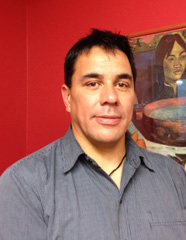Nau mai, haere mai, welcome.
The AFL2.0 study investigates the dramatic decline of smoking, drinking and drug use among adolescents to determine the drivers of this 'megatrend.'
Our findings will contribute to international efforts to understand why substance use has declined in adolescents. This work may also inform local efforts, including those by and for Māori and Pacific, to reduce substance-related harm.
Please contact the project team via the project principal investigator Jude Ball:
Tel +64 4 918 6576
Email jude.ball@otago.ac.nz
About the AFL 2.0 study
Background
Adolescent smoking, drinking and drug use have declined dramatically over the past 15–20 years in Aotearoa New Zealand and other OECD countries. This international trend is poorly understood despite its public health importance. The large and unprecedented decline in substance use is youth-specific and sits alongside international declines in teen pregnancy, juvenile crime and dangerous driving.
What is driving this trend is largely unknown. This leaves policy makers and researchers struggling to influence further positive change or prevent future reversals in the trend. Understanding the drivers of the declining substance use among Māori teens is particularly important as gaps between Māori and non-Māori remain stark, and the findings may inform health promotion efforts.
Research approach
In this qualitative study we will investigate the possible contribution of the changing functions and meanings of substance use in adolescents' lives. We will compare archival interview data collected at the peak of adolescent substance use 20 years ago, with contemporary data collected for this study.
The interviews cover friendships, lifestyle, and perceptions about substance use and non-use. They aim to address questions such as whether other practices (social media and gaming for example) are fulfilling the social functions that substance use once did (such as projecting a “cool” or “grown up” identity, bonding with friends and meeting new people).
Findings and publications
Brief summary
Journal articles
- 'You just wanna hit it… 'cause like it smells like fun': a qualitative investigation of adolescents’ experiences of nicotine vaping in Aotearoa New Zealand
- Understanding youth drinking decline: Similarity and change in the function and social meaning of alcohol use (and non-use) in adolescent cohorts 20 years apart.
Conference presentations
- Australasian Professional Society on Alcohol and other Drugs (APSAD) conference, Adelaide, 12–15 November 2023
Nicotine vaping among New Zealand adolescents (PDF) - ASPIRE Aotearoa Symposium, Wellington, 23 May 2023
Rangatahi Māori and the Changing Tides of Substance Use: A comparative thematic analysis study (PDF) - KBS Thematic Meeting “Youth Drinking in Decline” Stockholm, 3–5 October 2022
Abstract: Continuity and change in the function and social meaning of alcohol use (and non-use) for adolescents (PDF)
Webinars
- ASPIRE Aotearoa Webinar, 24 August 2023
Qualitative findings on nicotine vaping among 14-17 year olds
Media coverage
- Stuff/The Post, 25 May 2023, Why more high school students are saying yeah nah to alcohol
- Radio New Zealand, 25 May 2023, Staying sober loses stigma among some New Zealand teens, binge drinking still an issue
- NZ Herald, 25 May 2023, New Zealand teens are drinking less possibly because they're staying home and online
- Otago Daily Times, 25 May 2023, Youth drinking decline reported
- Newshub, 25 May 2023, The way teens socialize could be behind this generation saying no to alcohol
- NewstalkZB, 25 May 2023, Study finds alcohol may not hold the allure it once did for young people
- 1News/Breakfast, 25 May 2023, Young people drink less alcohol than 20 years ago – research
- Newshub, 25 May 2023, Generation sobriety: Why NZ teens are drinking far less than they were 20 years ago
Our people
Jude Ball (PhD) – Principal Investigator
 Jude completed a PhD in 2019 exploring the drivers of long-term trends in adolescent risk behaviour, in particular smoking, cannabis use, binge drinking and sexual behaviour. Her research focuses on the impact of the changing social context on youth trends, and the inter-relationships between smoking and other risk behaviours in young people.
Jude completed a PhD in 2019 exploring the drivers of long-term trends in adolescent risk behaviour, in particular smoking, cannabis use, binge drinking and sexual behaviour. Her research focuses on the impact of the changing social context on youth trends, and the inter-relationships between smoking and other risk behaviours in young people.
Email jude.ball@otago.ac.nz
Michaela Pettie (PhD) – Research Fellow
 Michaela (Ngāti Pukenga, Ngāti Maru) is a wāhine rainbow community member. She completed her PhD exploring the factors involved in autism spectrum disorders in 2020. Her research interests all relate to general wellbeing and mental health, and her work provides findings that are relevant to communities and whānau.
Michaela (Ngāti Pukenga, Ngāti Maru) is a wāhine rainbow community member. She completed her PhD exploring the factors involved in autism spectrum disorders in 2020. Her research interests all relate to general wellbeing and mental health, and her work provides findings that are relevant to communities and whānau.
Loleseti Poasa – Assistant Research Fellow

Loleseti is of Samoan descent and is currently studying towards a Bachelor of Health degree majoring in Health Promotion, Education and Pacific Studies. Her aims are to develop hauora resources and supports for the wellbeing of Pasefika communities and to ensure inclusion and access to healthcare services.
Andrew Waa (MPH) – Māori Advisor
 Andrew (Ngā Puhi, Ngati Hine) is a co-director of the ASPIRE2025 Tobacco Control Research Centre at the University of Otago. Andrew's work includes teaching Hauora Māori, conducting Māori Health research and conducting research with Māori communities. He is involved with tobacco research, health promotion, evaluation and interventional design and urban Māori well-being.
Andrew (Ngā Puhi, Ngati Hine) is a co-director of the ASPIRE2025 Tobacco Control Research Centre at the University of Otago. Andrew's work includes teaching Hauora Māori, conducting Māori Health research and conducting research with Māori communities. He is involved with tobacco research, health promotion, evaluation and interventional design and urban Māori well-being.
Email andrew.waa@otago.ac.nz
The project is also supported by advisors including:
Funding
The AFL 2.0 study is supported by a Royal Society / Te Apārangi Marsden Fast Start Grant.
The funding proposal (20-UOO-007) was entitled Clean Teens: Understanding declines in smoking, drinking and drug use in young people's lives.
Additional support was received from the Cancer Society of New Zealand, Wellington Division.
Ethical approval
This study has been approved by the University of Otago Human Ethics Committee (ref 21/011). If you have any concerns about the ethical conduct of the research, you may contact the Committee through the Human Ethics Committee Senior Administrator, Jo Farron de Diaz.
Tel +64 3 479 8956
Email jo.farrondediaz@otago.ac.nz
Any issues you raise will be treated in confidence and investigated and you will be informed of the outcome.
Related research
This study builds on the doctoral research of the principal investigator, Dr Jude Ball. You can find out more about her work through media reports and academic publications below:
- Kids have cut the binge drinking – and we don't really know why The Detail podcast, 10 Aug 2020, Radio New Zealand.
- Ball, J. (2019). Sex, drugs, smokes and booze: What's driving teen trends? Describing and explaining trends in adolescent sexual behaviour, cannabis use, smoking and alcohol use in the early 21st century (PhD thesis). University of Otago, Dunedin, New Zealand. http://hdl.handle.net/10523/9603
- Ball, J., Sim, D., Edwards, R., Fleming, T., Denny, S., Cook, H., & Clark, T. (2019). Declining adolescent cannabis use occurred across all demographic groups and was accompanied by declining use of other psychoactive drugs, New Zealand, 2001-2012. New Zealand Medical Journal, 132(1500), 12-24. Retrieved from https://www.nzma.org.nz/journal
- Ball, J., Edwards, R., Sim, D., Cook, H., & Denny, S. (2020). What explains the decline in adolescent binge-drinking in New Zealand? International Journal of Drug Policy, 84, 102826. doi: 10.1016/j.drugpo.2020.102826